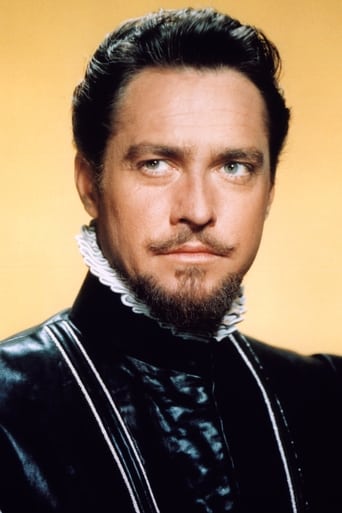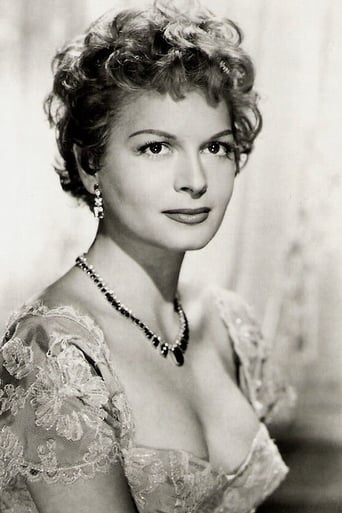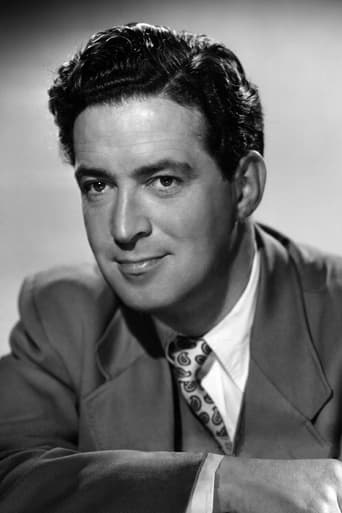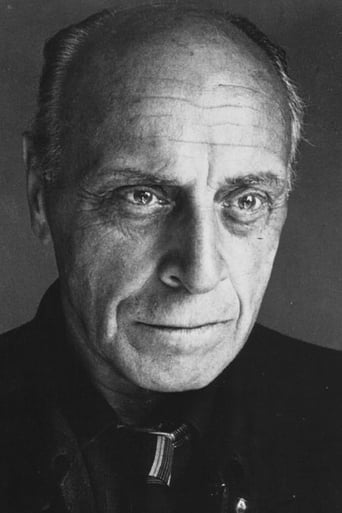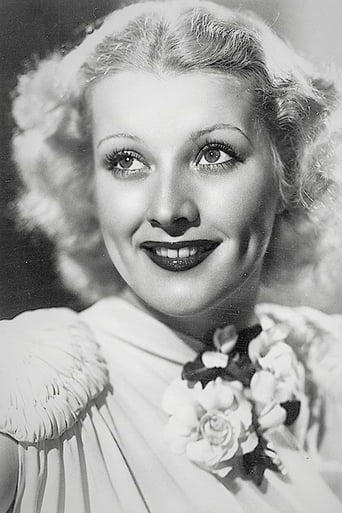GurlyIamBeach
Instant Favorite.
Comwayon
A Disappointing Continuation
ChicRawIdol
A brilliant film that helped define a genre
karen5778
This movie is obviously a competent adaptation of a book. It is pretty good, if you like grade B noir, and we do, but the most fun is seeing familiar faces playing against type and/or putting on Italian accents.The villain in particular was a shocker, as I'd only seen him in light comedies. The most fun was looking up the bios of the actors on IMDb. It is one of those ones where a lot of the actors played roles in WWII themselves, some of them more dramatic than the parts they play here.IMDb requires 10 (!) lines of text, so I will say the pigeons of Venice are amazing, some of the best lines are idiotic in context, and why have a chase scene in a glass factory if you aren't going to break any glass? I guess they didn't have the budget as they filmed in a real glass factory. And, IMDb, "bios" is not a misspelling of BIOS, it is a common term for biography.
davidmgeer
As another reviewer says this is something of an underrated film. More so since it was made in 1952. At that time exchange controls would have limited the amount of filming that could be done overseas and so much of it was studio filmed in England. The story is intricate and the full meaning is not revealed until the final 20 minutes. If Venice seems harsh and cold its very much in the recovery from war mode yet the back drop is excellently atmospheric. The absence of tourists is refreshing. The films high contrast back and white rendition is also noteworthy.Good cast....Not hard to see why some say Bond meets 3rd man! Even some classy looking femmes fa tales!
T Y
Dapper, debonair, Brit Richard Todd runs around Venice (in a nicely tailored suit) trying to detect and derail an evil plot.The best part of this is quite early, when we're not sure if Todd is a hero or a villain. Unfortunately they neutralize any of Todd's threat much too early and jump headlong into fairly disposable conventions (the burden of a female lead arrives). Todd's moral ambiguity ends far too soon, and once he's shown to be a run-of-the-mill straight shooter, things get less interesting.Still it does not look like a B noir. There's more than competent lighting, surprisingly difficult camera moves (carried off smoothly) and a serious mood. Talented people are at work. It's Hitchcockian, almost Welles-ian (George Couloris is in it). How many B Noirs are filmed on location in Venice? For that matter, how many A noirs are? It's shockingly cynical for this era (likewise for Frank Capra's State of the Union '48, and All the Kings Men '49). It has a few smart, bracing lines in it: "When a man faces a blank wall, he turns round and come back. But put him on the wrong path and he'll never come back." "Sometimes changing your habits at the right time is all it takes to save your life"As I watched, I wondered if this was the template for Ian Fleming's Bond? Did 'The International' borrow a ton from this? Both end with a rooftop pursuit. Richard Todd even resembles Clive Owen a bit. Far inferior things were made in the States that are still available (Frank Sinatra in Suddenly! ???) while this remains obscure.
JohnHowardReid
A millionaire hires a private detective to find and reward a wartime partisan who saved his life. Unfortunately, the man does not want to be found. Sound familiar? It ought to be. "Family Plot" is a blatant variation.One of the best cinema translations of a mystery thriller ever made, the pacily-directed "Venetian Bird" started life as a gripping page-turner by Victor Canning who was, most fortunately, called upon to write the screenplay from his own book by astute producer, Betty Box, who saw to it that a fine cast of players headed by Richard Todd, Eva Bartok and Walter Rilla were assembled and flown to the suitably noirish Venice locations where the film was actually photographed.From its attention-grabbing credits superimposed on a high angle over St Mark's Square, and underlined by Nino Rota's superlatively evocative music score, to the thrilling conclusion in that same square (astutely borrowed from Orson Welles' "The Stranger"), "Venetian Bird" is a high-flying movie. (What idiot changed Victor Canning's most appropriate title to "The Assassin"? No wonder all the movie's fans live abroad! The American title gives half the plot away before a patron even enters the theater or switches on the TV. As he twiddles his thumbs while he sits through all the now non-suspenseful exposition of the first half of the film, the American viewer must wonder why all the on-screen characters are so incredibly stupid. If you know the plot even before Richard Todd swings into action—and "swings" is the word, because he performs all his own breathtaking stunts—and the super-lovely Eva Bartok brings an otherwise spellbinding touch of mystery to her enigmatic role, you may well conclude that "Venetian Bird", despite all its atmospheric trappings, is no masterpiece of suspense.All the same, it's still difficult to downgrade Ernest Steward's strikingly somber, moody camera-work, or the charisma of the players. Only the normally reliable John Gregson fails to convince. Fortunately, his part is small. The support cast is otherwise in the reliable hands of people like Walter Rilla's delightfully suave and sinister villain, and Margot Grahame's fine-tuned, carelessly guiltless charmer.
